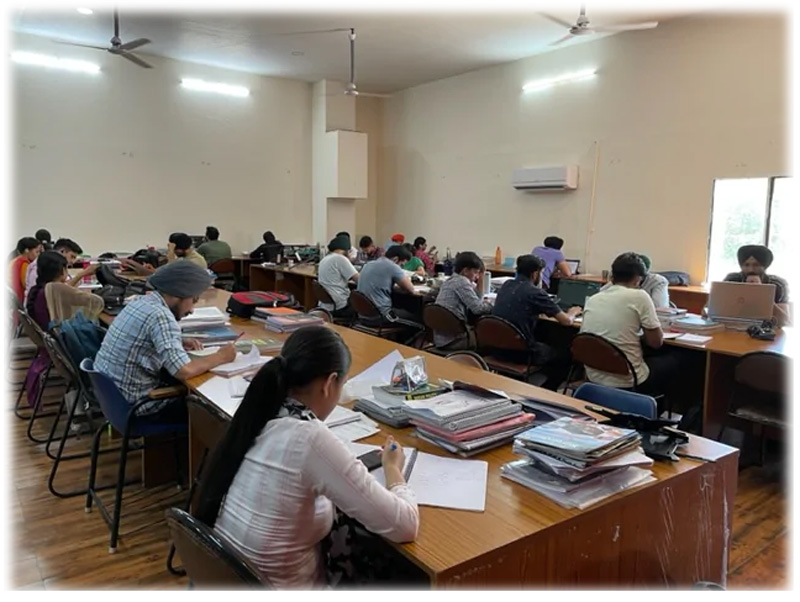Punjab empowers marginalized communities with free civil service coaching

In a significant effort to uplift marginalized communities and empower them with the opportunity to serve their nation through civil services, the Government of Punjab recently organized an entrance test for free civil service coaching.
The initiative, led by the Department of Social Justice Empowerment and Minorities, is designed to prepare graduate candidates hailing from Scheduled Castes, Backward Classes, and Minorities for the challenging civil service examinations.
Dr. Ambedkar Institute of Career and Courses, located in Phase 3B2 Mohali, played host to the entrance test, with a primary focus on providing eligible candidates from these underrepresented groups with comprehensive coaching, free hostel accommodations, and financial assistance to help them realize their dreams of a career in civil services.
Dr. Baljit Kaur, the Minister of Social Justice, Empowerment, and Minorities, shared that the criteria for candidates are as follows: they must hold Punjab domicile, have a minimum of a graduate degree, and be a member of the Scheduled Castes, Backward Classes, or Minorities. Additionally, the family income of the candidate from all sources should not exceed Rs. 3.00 lakh per annum. These measures are put in place to ensure that those who genuinely need this support have access to it.
Out of the 40 available seats for the coaching course, 20 have been specifically reserved for Scheduled Castes, 12 for Backward Classes, and 8 for Minorities. Moreover, there is a provision to allocate 30 percent of these seats for women and 5 percent for disabled individuals in each category. This proactive approach guarantees that various sections of society are represented and supported in their pursuit of civil service careers.
Dr. Kaur also noted that a remarkable 790 candidates expressed their interest in the entrance examination, demonstrating a strong desire among the youth to serve their nation in administrative roles. Of these, 540 candidates successfully took the exam, illustrating the commitment and enthusiasm of the applicants.
At Dr. Ambedkar Institute of Career and Courses, Phase 3B2 Mohali, candidates who make the cut will receive free coaching, complimentary hostel accommodations, and financial assistance of Rs 3,000 per month, adhering to government regulations. The primary objective of this initiative is to level the playing field and ensure that individuals from weaker sections of society have the necessary skills and knowledge to compete in civil service exams and secure government jobs.
Looking forward, the government plans to further enhance the offerings of the institute. Under the direction of Dr. Baljit Kaur, Minister for Social Justice, Empowerment, and Minorities, and Principal Secretary V. K. Meena, the institute will undergo a revamp in the coming financial year. New courses will be introduced, and the number of seats will be increased for Scheduled Castes, Backward Classes, Minorities, and economically weaker section (EWS) students. These measures will better prepare students for competitive exams, furthering the government’s commitment to inclusivity and diversity.
Officiating Principal Ashish Kathuria expressed his enthusiasm, sharing that this year had seen an unprecedented number of applications. A record-breaking 800 applicants, nearly 20 times the number of available seats, applied for the program. In response to the surging demand, the institute is exploring the possibility of accommodating two batches of 40 students each, totaling 80 individuals. This development is a testament to the program’s effectiveness and the determination of students to secure a brighter future through civil services.
The Government of Punjab’s initiative to provide free civil service coaching to marginalized communities reflects its commitment to social justice and inclusivity. By offering a helping hand to those who need it most, the program not only empowers individuals but also strengthens the civil service with a more diverse and representative workforce. It’s a win-win for the state and its people, making a significant stride toward a fairer, more equitable society.
(Image and text courtesy: Khalsavox.com)




